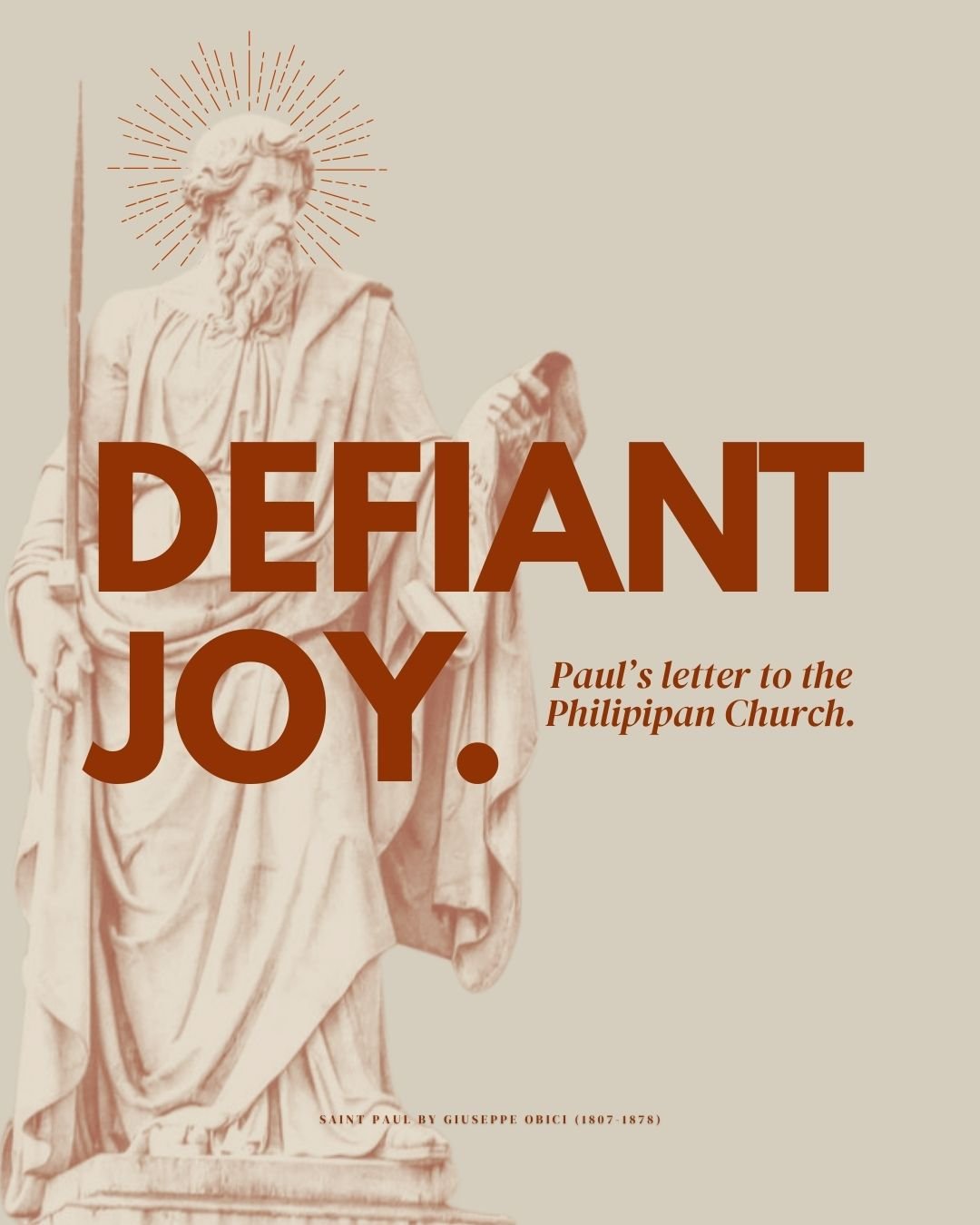Defiant Joy
In his letter to the Philippians, the apostle Paul writes from prison to a beloved community he once shared chains with, offering a message overflowing with gratitude, humility, and unwavering joy. Set in a Roman colony where allegiance to empire defined identity, Philippians calls the early church to a different kind of loyalty: to Christ, who emptied himself in love. As we journey through this letter, we’ll explore how joy can be both a gift and a rebellion—a defiant act of faith in the face of hardship, suffering, and uncertainty.
Oftentimes we treat the modern church like a product to be consumed rather than a community to belong to. In Colossians 3, Paul calls the church to remember who it is: God’s unified family, chosen and dearly loved. This identity invites us to set aside the divisions we carry in from the world, to clothe ourselves in compassion, humility, and forgiveness, and to practice a love that binds us together in perfect unity. The invitation is not mere attendance, but shared commitment—a community formed by Christ’s grace and devoted to one another’s good.
What do we do when the needs around us feel too overwhelming to make a difference? In this final message from our Defiant Joy series in Philippians, we explore how cynicism, fear, and scarcity can shrink our capacity to live generously. Drawing from Paul’s gratitude to the Philippian church, we consider how generosity is not only about meeting practical needs but about the inner transformation that happens as we loosen our grip on time, money, and comfort. Through Scripture, cultural reflection, and honest confession, we’re invited to rediscover the freedom that comes from trusting in God’s abundance.
Contentment is one of the most misunderstood yet deeply desired qualities in life. We often hear Paul’s words in Philippians 4:13—“I can do all things through Christ who strengthens me”—and mistake them for a motivational slogan or spiritual pep talk. But Paul’s understanding of contentment and strength is far richer. Writing from prison, he expresses gratitude not for what he has received, but for what generosity is producing in others. His contentment is not rooted in self-sufficiency or independence, but in a radical dependence on Christ.
Hypocrisy is a universal part of the human condition—a gap between who we are and who we aspire to be. Rather than denying or being discouraged by our inconsistencies, we are invited to face them with honesty and humility, striving to close the gap through growth and grace. In Philippians, Paul offers practical guidance for how this can take shape, particularly in areas where hypocrisy often appears: conflict, anxiety, and virtue.
In a world that demands our loyalty in many directions—nation, party, ideology—Paul insists that Christ alone is Lord. Every other identity or allegiance is secondary, and our unity as followers of Jesus must transcend political divides. This challenges us to examine where our true loyalty lies and to resist the temptation to elevate any earthly power to the place of Christ.
Spiritual complacency often creeps in unnoticed, disguising itself as contentment or routine. It can cause us to settle for a stagnant faith, where we go through the motions without truly engaging with God. True growth requires us to recognize and resist this inertia, choosing instead to pursue Christ with renewed intentionality and passion. The journey of faith is ongoing, not a destination we reach once and for all.
In a world overflowing with options for meaning and identity, the question naturally arises: is Jesus worth it? Paul’s answer is an unqualified yes. He has lost much—status, friends, perhaps even family—but he insists that nothing compares to the joy and significance of knowing Christ. This “knowing” is not mere intellectual assent, but a deep, relational friendship with Jesus, an invitation into the very love of the Trinity. To know Christ is to be loved as you are, to find your true significance as God’s beloved.


